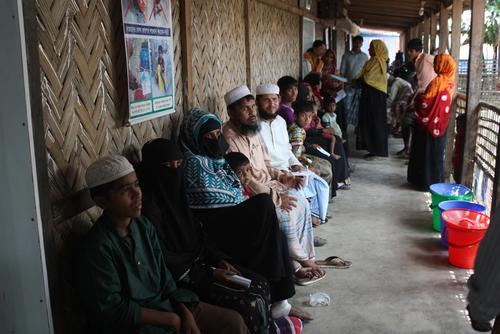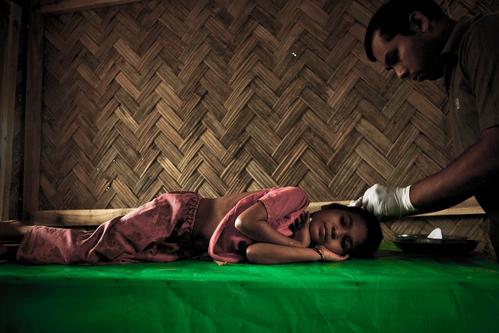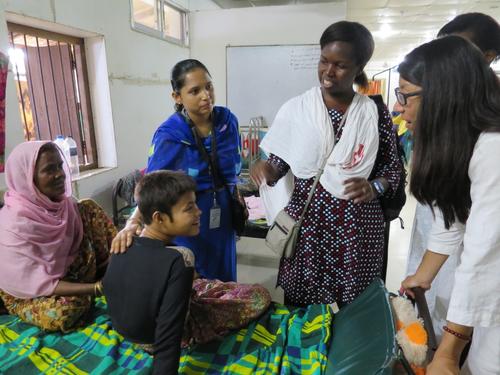MSF teams in Bangladesh are treating survivors of sexual violence as part of their response to the Rohingya refugee crisis. To date, they have treated more than 125 people but the suspected number of cases is much higher.
Midwife Aerlyn Pfeil helped set up the programme. Here, she answers questions about the challenges in treating these patients, MSF's approach, and what she will remember about the survivors she met in Bangladesh.
What were the challenges in treating these patients?
The challenge with treating these particular women and girls was how brutal their experiences had been.
A lot of gang rape, a lot of public rape, some girls that were taken for days and assaulted often.
I think a lot of women were just wanting to know that their bodies were okay again and I think a lot of women were concerned about whether or not they were pregnant.
One of the big challenges and concerns for MSF in general is unsafe abortion care. We know that that's one of the top five risks for maternal death worldwide.
It wasn't surprising that we had a lot of women coming in bleeding for unknown reasons and numbers that were high enough, that it was easy to speculate that they're starting termination of pregnancy at home.
How did you respond?
Actually, my first couple of days, I spent out on the berm, which is this small narrow strip of land where thousands of refugees were crossing over, to see if there was any need for medical services for post-rape survivors at that moment in time or if it made more sense to collect those survivors later, after they'd been settled in the camp.
So, we trained a group of young women to spread the messages about sexual violence in the community, but to be able to actually have a more in-depth conversation.
Different communities have different ways of even saying "rape". So having a Rohingya population be our outreach team is vital to the understanding for the community.
A lot of women were coming in because they, I think, just wanted to be heard. We had a very strong mental health component to our services, so anyone who came in for sexual violence was also referred to a mental health officer.
What will you remember most about these patients?
Spending my first day out on the berm where there are 14,000 people waiting to cross the border and wanting to pull out any emergency cases and make sure that everyone has some understanding of where they can go and get medical care once they're established in the camp.
That all took a different shape in my mind when I started to hear the stories of how many women were assaulted and fled immediately upon escape. No stopping to collect any supplies or memorabilia or anything that we think is important when you are moving to a new country.
Really, just fleeing with the clothes on their back and then having women come in for medical care still wearing the same clothes that they were assaulted in.





